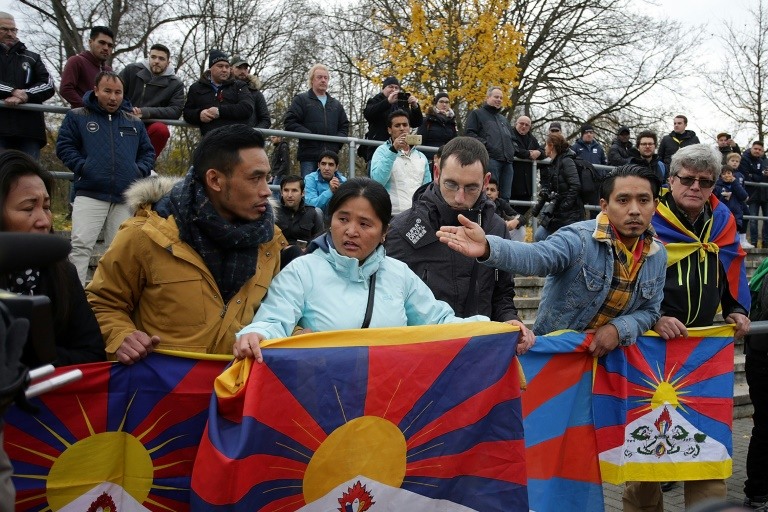By Samindra Kunti
November 27 – The marriage between the German Football Association (DFB) and China’s U-20 team has hit a rough patch. Pro-Tibet protests derailed the development experiment that saw China’s U-20s competing against teams in Germany’s fourth professional tier.
After all the politicking by the two major powers and the negative reaction from both local clubs and fans, it was a small scale protest that threw a spanner in the works of China’s new football relationship with the DFB. No more than six fans and a few Tibetan flags at the match between TSV Scott Mainz and China’s U-20 team forced a U-turn over the project.
In anger the Chinese players walked off the pitch before eventually returning to lose the game 3-0, when German police had removed the flags. The actions spawned headlines around the world and the pro-Tibet rally sparked a terse statement from Beijing, with China reacting angrily to any suggestion that the Himalayan territory should be independent.
“We are firmly opposed to any country or any individual offering support to separatist, anti-China and terrorist activities or activities defending Tibet independence, in any form or under any pretext,” said Chinese foreign ministry spokesman Lu Kang. “I must stress that mutual respect is what the official host should provide their guest, and that respect between any two countries should be mutual.”
Last Friday the DFB conceded a revision of the project, explaining that the friendly games with the Chinese U-20 team were to be postponed until after the winter break.
“To the regret of all parties involved, the project has not received the broad approval that had been expected,” wrote the DFB. “In fact, the project was used by a handful of spectators to send messages that were considered hurtful by the Chinese team, officials, the Chinese Football Association’s support staff and Chinese spectators.”
In the statement the DFB also highlighted that there was “substantial evidence of further escalation.”
“We live in Germany,” said DFB vice-president Ronny Zimmermann in separate comments. “We have freedom of expression. As guests, you should be able to handle that calmly and rise above it.”
But the Chinese couldn’t handle it. This weekend FSV Frankfurt were to host the Chinese team and in an interview with local newspapers FSV Frankfurt President Michael Görner had indicated the club wouldn’t stop any protests. “We will not back off a single centimeter of the basic rights our democracy, including those relating to freedom of speech,” said Görner.
Back in 2016, Germany and China signed a “comprehensive agreement at government level” to boost the development of the game in China, with agreements also struck between the DFB, the German Football League (DFL), the Chinese Ministry of Education and the Chinese Football Association CFA. Germany’s ‘Regionalliga Südwest’ has only 19 teams, the addition of the Chinese would make it a 20-team league.
The Chinese sold the idea as preparation for the Tokyo 2020 Olympics along with the development objective of improving the standard of Chinese football, but after a negative reception by German clubs the plan was watered down to a series of friendlies. Not even a financial incentive could sway the German clubs – they had been set to receive €15,000 each for the two matches in the league format against their Chinese opponents.
Contact the writer of this story at moc.l1745644150labto1745644150ofdlr1745644150owedi1745644150sni@i1745644150tnuk.1745644150ardni1745644150mas1745644150


